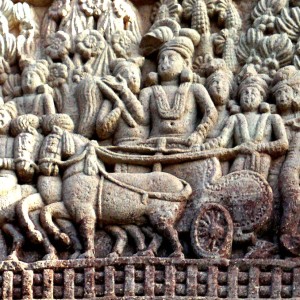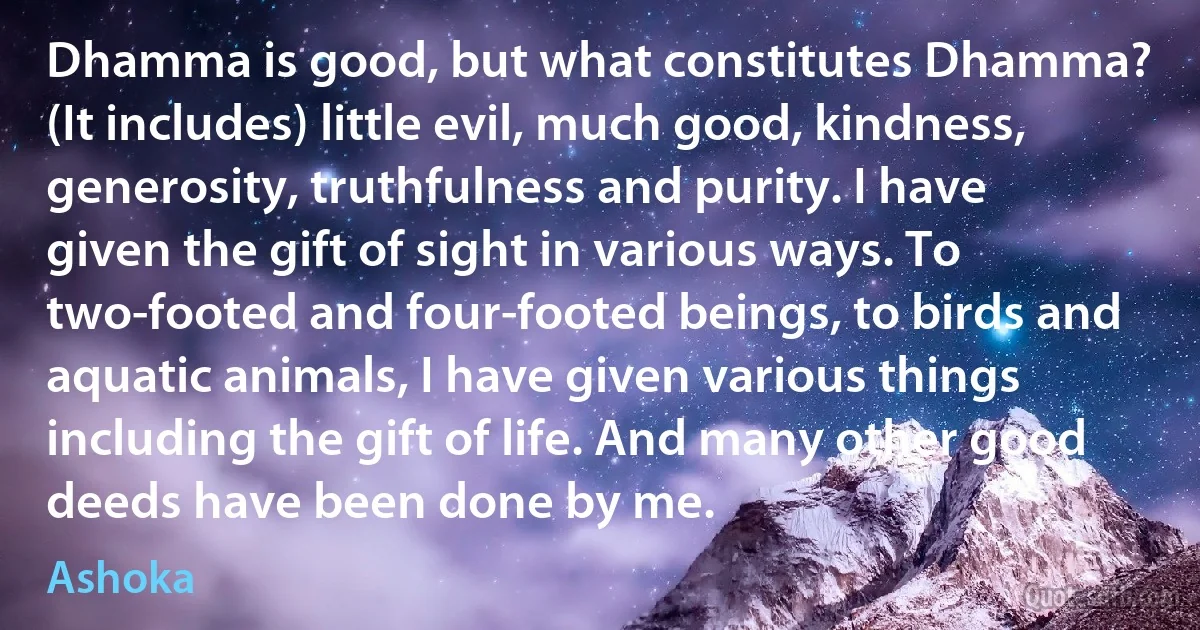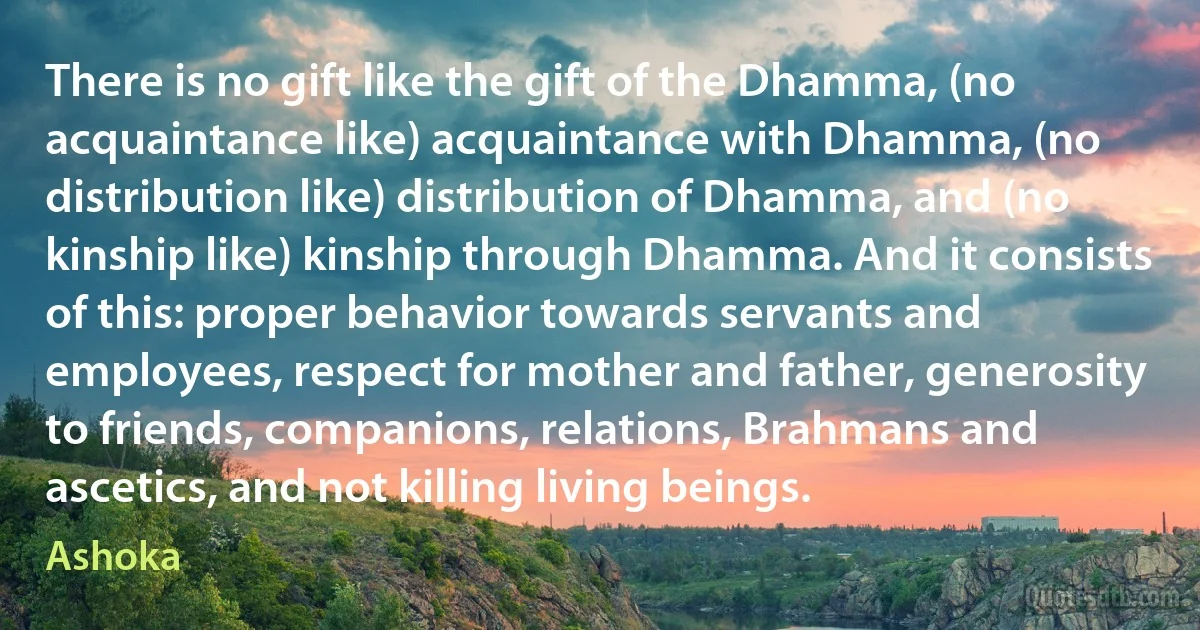Ashoka quotes
Ashoka was an Indian emperor of the Maurya Dynasty, renowned for uniting most of the Indian subcontinent. His reign became famous for the widespread adoption of Buddhism and his commitment to nonviolence following a brutal war. He is remembered as one of history’s greatest and most compassionate rulers. Here are 23 of his quotes:
All men are my children. What I desire for my own children, and I desire their welfare and happiness both in this world and the next, that I desire for all men. You do not understand to what extent I desire this, and if some of you do understand, you do not understand the full extent of my desire.

Ashoka
To do good is difficult. One who does good first does something hard to do. I have done many good deeds, and, if my sons, grandsons and their descendants up to the end of the world act in like manner, they too will do much good. But whoever amongst them neglects this, they will do evil. Truly, it is easy to do evil.

Ashoka
Beloved-of-the-Gods, King Piyadasi, desires that all religions should reside everywhere, for all of them desire self-control and purity of heart. But people have various desires and various passions, and they may practice all of what they should or only a part of it. But one who receives great gifts yet is lacking in self-control, purity of heart, gratitude and firm devotion, such a person is mean.

Ashoka
Whatever good deeds have been done by me, those the people accept and those they follow. Therefore they have progressed and will continue to progress by being respectful to mother and father, respectful to elders, by courtesy to the aged and proper behavior towards Brahmans and ascetics, towards the poor and distressed, and even towards servants and employees.

Ashoka
My only intention is that they live without fear of me, that they may trust me and that I may give them happiness, not sorrow. Furthermore, they should understand that the king will forgive those who can be forgiven, and that he wishes to encourage them to practice Dhamma so that they may attain happiness in this world and the next.

Ashoka
King Piyadasi, honors both ascetics and the householders of all religions, and he honors them with gifts and honors of various kinds. But Beloved-of-the-Gods, King Piyadasi, does not value gifts and honors as much as he values this - that there should be growth in the essentials of all religions.

Ashoka
Beloved-of-the-Gods, King Piyadasi, conquered the Kalingas eight years after his coronation. One hundred and fifty thousand were deported, one hundred thousand were killed and many more died (from other causes). After the Kalingas had been conquered, Beloved-of-the-Gods came to feel a strong inclination towards the Dhamma, a love for the Dhamma and for instruction in Dhamma. Now Beloved-of-the-Gods feels deep remorse for having conquered the Kalingas.

Ashoka
People see only their good deeds saying, "I have done this good deed." But they do not see their evil deeds saying, "I have done this evil deed" or "This is called evil." But this (tendency) is difficult to see. One should think like this: "It is these things that lead to evil, to violence, to cruelty, anger, pride and jealousy. Let me not ruin myself with these things."

Ashoka
Beloved-of-the-Gods, King Piyadasi, has caused this Dhamma edict to be written. Here (in my domain) no living beings are to be slaughtered or offered in sacrifice. Formerly, in the kitchen of Beloved-of-the-Gods, King Piyadasi, hundreds of thousands of animals were killed every day to make curry. But now with the writing of this Dhamma edict only three creatures, two peacocks and a deer are killed, and the deer not always. And in time, not even these three creatures will be killed.

Ashoka
Beloved-of-the-Gods speaks thus: Father and mother should be respected and so should elders, kindness to living beings should be made strong and the truth should be spoken. In these ways, the Dhamma should be promoted. Likewise, a teacher should be honored by his pupil and proper manners should be shown towards relations. This is an ancient rule that conduces to long life. Thus should one act.

Ashoka
Although Ashoka was victorious in this horrific and gruesome war, he felt remorse for all the suffering he had caused and hence turned to Buddhism. He wrote in his Edict Thirteen that:
The Kalingas were conquered by His Sacred Majesty the King when he had been consecrated for eight years. One hundred and fifty thousand persons were thence carried away captive, and one hundred thousand were there slain, and many times that number perished. Directly after the annexation of the Kalingas, began his Sacred Majesty's zealous protection of Dharma, his love of Dharma, and his giving instruction in that. Thus arose His Sacred Majesty's remorse for having conquered the Kalingas, because the conquest of a country previously unconquered involves the slaughter, death, and carrying away captive of the people. That is a matter of profound sorrow and regret to His Sacred Majesty.

Ashoka
Ashoka
 Occupation: Indian Emperor
Occupation: Indian Emperor
Born: 304 BC
Died: 232 BC
Quotes count: 23
Wikipedia: Ashoka












